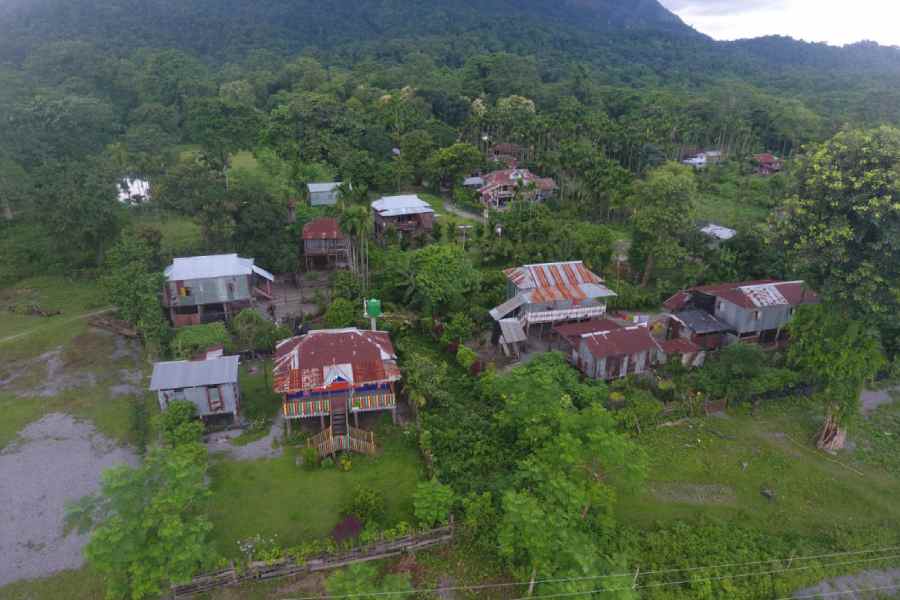Worthy risk
Sir — Instances of polling officers being unable to carry out their duties owing to intimidation by hooligans from various political parties abound each election season. But what is rare are stories of poll personnel who are ready to brave no less than the royal Bengal tiger to ensure that people can cast their votes (“Last vote before tigers take over village”, Mar 19). One such tale is that of Bhutia Busty, which lies at the core of the Buxa Tiger Reserve. The now-empty village will see its last vote this April as the villagers have been relocated from there to make space for tigers and their prey. If India is the mother of democracy, then those citizens who are ready to step into the heart of tiger territory to cast their votes and conduct the polls are her true children.
Brijendra Nath Biswas, Calcutta
Some concerns
Sir — A committee led by the former president, Ram Nath Kovind, has recommended that India transition to a system of simultaneous polls for all levels of government to be held within a 100-day window (“Concurrent polls get panel nod”, Mar 15). Synchronising Lok Sabha and assembly elections will not be a challenge legally as the relevant constitutional changes will not require ratification by the states. A common voter list is also a sound idea. However, there are some problems that need to be ironed out before the Bharatiya Janata Party’s idea of ‘one nation, one election’ can become a reality.
Moreover, parliamentary and assembly elections have different dynamics. For instance, the BJP clinched victory in many seats of the national capital in the Lok Sabha elections of 2014 and 2019; however, it was the Aam Aadmi Party that swept to power in Delhi in successive assembly polls.
Khokan Das, Calcutta
Sir — The official report on the proposal for ‘one nation, one election’ is not surprising. The committee deliberating on the matter has concurred with the ruling party at the Centre and recommended that simultaneous polls be held across the country. Reduction in expenses and continuity in governance are the main arguments in favour of the idea. But this justification does not pass muster. The state and the local governments would lose much of their significance and their agendas would be conflated with those of the Centre if elections are held simultaneously. The maladies in electoral practices in India cannot be wished away through piecemeal reforms.
D.V.G. Sankara Rao, Andhra Pradesh
Sir — The High Level Committee on Simultaneous Elections headed by the former president, Ram Nath Kovind, has endorsed simultaneous polls to the Lok Sabha and the state assemblies followed by elections to the local bodies within 100 days. The primary reason for this recommendation is a considerable reduction in costs. But many issues will have to be resolved before the system can be implemented. Firstly, in case an elected representative were to pass away, when would by-elections be held in his or her constituency? Secondly, simultaneous elections will also require strengthening the anti-defection law — defection should be completely banned and splitting of parties into factions should invite penalties.
Sravana Ramachandran, Chennai
Sir — The idea of simultaneous polls for the Central and the state governments is necessary so that the country is not perpetually caught up in ‘election mode’ (“All in one”, Mar 19). Objections to the idea are numerous but none of them is particularly valid. The argument that the ruling party at the Centre may influence the state-level polls is ludicrous; had that been the case, the BJP would have won every state election in the last few years. Electoral reforms are urgently needed. Suitable amendments should be made.
Tapes Chandra Lahiri, Calcutta
Sir — As per the recommendation of the high-level committee that was probing the idea of simultaneous polls, if a mid-term general election needs to be held, the new Lok Sabha’s tenure will be only for the remainder of the “unexpired term” of the previously-elected House. Simultaneous polls could thus become more expensive — holding multiple general elections within five years would incur higher costs. Moreover, prematurely ending the terms of elected state assemblies would cause an uproar. Such a one-size-fits-all approach is incompatible with the principles of democracy.
Sujit De, Calcutta
Sir — It is true that frequent elections place an incalculable burden on national resources. Lakhs of paramilitary forces and government officials have to be deployed and schools are shut down to function as electoral booths. The assertion that concurrent polls will harm India’s democratic ethos does not hold water. After all, political parties will hardly stop pandering to their vote banks should simultaneous polls be instituted.
Abhijit Roy, Jamshedpur
Strong hold
Sir — Russia seems to have devolved into a full-fledged autocracy following the ‘landslide’ victory of Vladimir Putin after the death of his most vocal opponent, Alexei Navalny, under mysterious circumstances (“Firm grip”, Mar 19). The West’s sanctions have had little to no effect on Russia’s economy. Russia has long been a steadfast ally of India. India should thus not let the West interfere in its relationship with Russia.
Aranya Sanyal, Siliguri
Sir — The Russian president, Vladimir Putin, has clung to power for a fifth term. The latest presidential polls were merely a ceremonial affair given that Russia has gained ground in the Ukraine war and Putin had no opponents to speak of. The inescapable fact is that the West will have to continue to deal with Putin. However, India and China, both traditional Russian allies, should play a proactive role in de-escalating the war against Ukraine.
Gregory Fernandes, Mumbai










